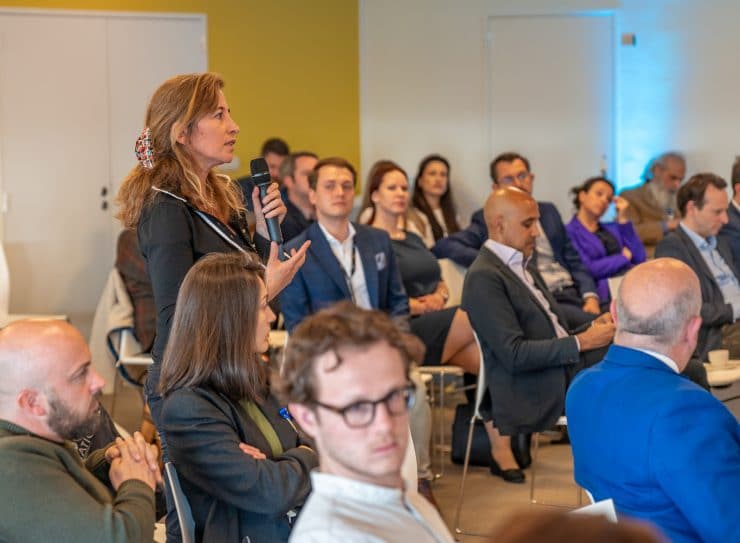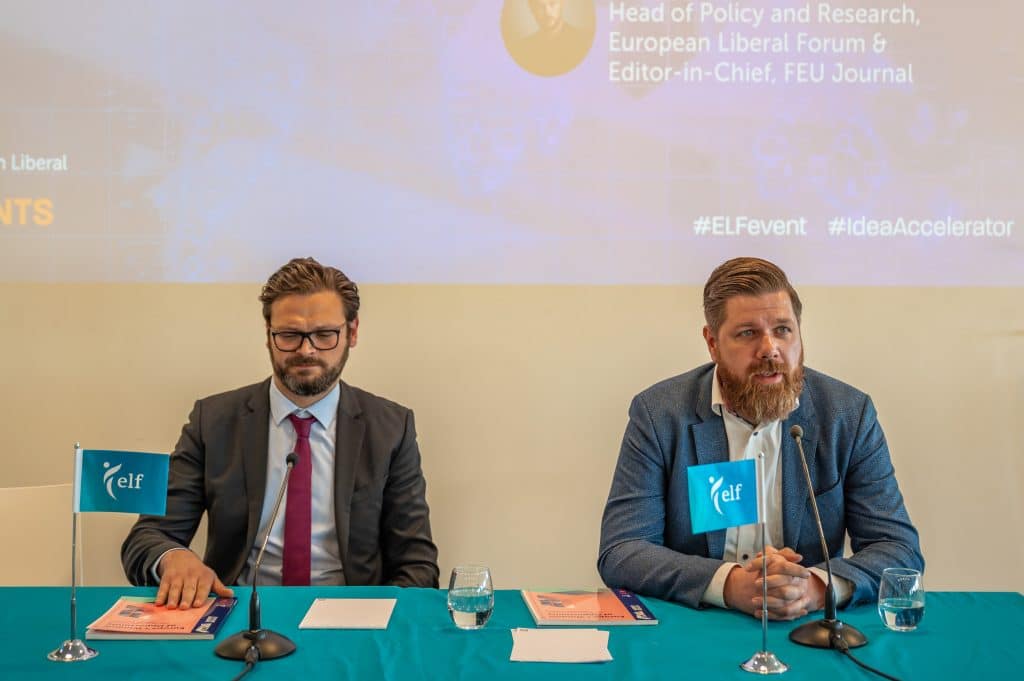25 April 2022
Protecting Media Freedom in the age of Tech Disruption
Media freedom is at the heart of our liberal values in this technological age. The conversations and debates of the […]

Media freedom is at the heart of our liberal values in this technological age. The conversations and debates of the […]

Media freedom is at the heart of our liberal values in this technological age. The conversations and debates of the Idea Accelerator aimed to inform on the threats we face surrounding media and disinformation in Europe, while also stimulating solutions and future strategy. Through our extensive liberal network, we brought together political figures, media experts and activists to tackle a range of topics including Russian propaganda, state-funded media and the role of the EU.

Of course, we cannot talk about disinformation without discussing the overarching war in Ukraine with the influence and dangers of the Russian propaganda machine. We were fortunate to welcome from Ukraine, Programme Director of the Open Minds Institute, Sophia Hnizdovska, who emphasised the complexities of tackling harmful disinformation from Russia.
The Open Minds Institute, centered around protecting citizens from authoritarian propaganda like that of Russia, find creative solutions to manoeuvre the disinformation and forge doubt the information received from Russian media – “We have to think outside of the box to decentralise the information”.
Learn more about the important work carried out by The Open Minds Institute in the fight for a free Ukraine.
What will the role of the EU be in tackling such threats to media freedom and protecting our liberal democracies? How can we find the balance between regulation and freedom of speech?
MEP Ondřej Kovařík, spoke on the seriousness of the threats and the importance of developing a comprehensive and robust toolbox in creating the appropriate response. Specifically, he emphasised promoting media literacy, and digital skills in increasing the resilience of societies in Europe.
Among other proposals for this EU ‘toolbox’, there was a strong attention to accountability of the state-funded media. Although, the consensus was that an all-out ban of state-funded channels would be counter-productive, there is still a lot of work required to ensure the public are receiving trustworthy and safe information.
–
Although the focus is placed on improving EU policy, Tanja Porcnik also reminded listeners of the importance of our individual efforts to inform others of the dangers of social media and fake news at at personal and local level.
There was particular frustration among the politicians and experts around the EU and financing necessary investigative journalism. Professor Marcus Ryder MBE of The University or Birmingham emphaised again this idea of accountability, but in the context of social media.
Katalin Csesh MEP argued that the EU has the resources but does not use them effectively, to expand the right information to those who do not follow European news and who do not speak our languages – “We are stuck in our European bubble and we need to reach out beyond it”.

Following many informative and innovative sessions, Executive Director Daniel Kaddik and Head of Policy and Research Antonios Nestoras of ELF closed the Idea Accelerator with thanks for the valuable and constructive input towards preserving media freedom in our societies, and debuting the new ‘Future Europe’ Journal.
–